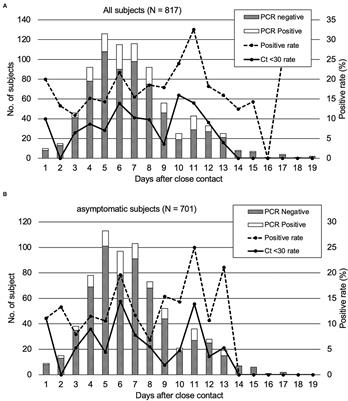COMMUNITY CASE STUDY
Published on 28 Jan 2022
Ideal Test Time for Coronavirus Disease 2019 Contact Tracing

doi 10.3389/fpubh.2021.690006
- 2,089 views
- 1 citation
63k
Total downloads
307k
Total views and downloads
COMMUNITY CASE STUDY
Published on 28 Jan 2022

MINI REVIEW
Published on 12 Oct 2021

PERSPECTIVE
Published on 10 Sep 2021

SYSTEMATIC REVIEW
Published on 01 Sep 2021

CASE REPORT
Published on 19 Aug 2021

REVIEW
Published on 09 Aug 2021

ORIGINAL RESEARCH
Published on 22 Jul 2021

COMMUNITY CASE STUDY
Published on 30 Jun 2021

ORIGINAL RESEARCH
Published on 23 Jun 2021

COMMUNITY CASE STUDY
Published on 14 Jun 2021

ORIGINAL RESEARCH
Published on 10 Jun 2021

ORIGINAL RESEARCH
Published on 20 May 2021

